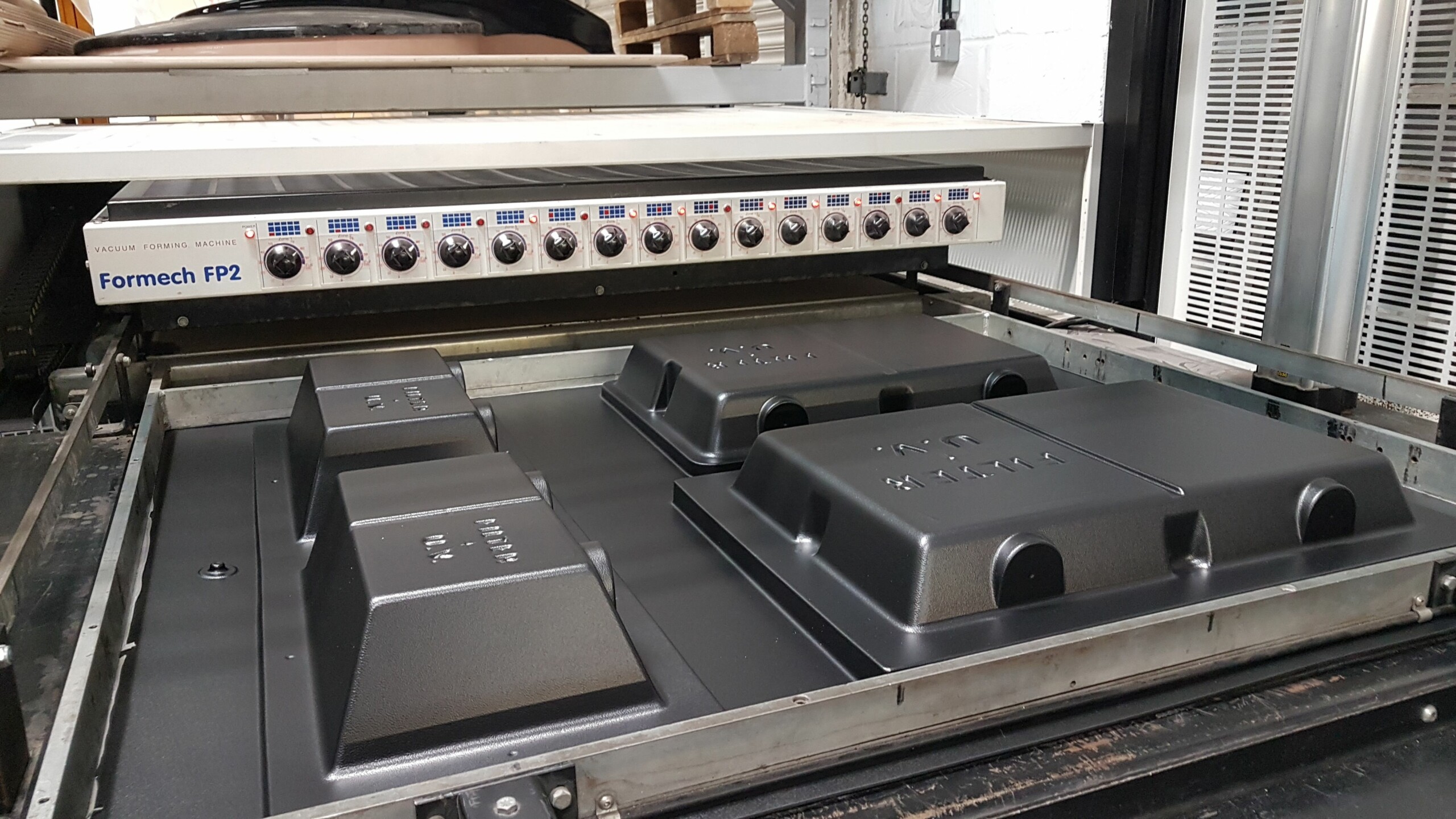
Vacuum forming is a widely used polymer-based molding technique that involves heating a polymer sheet until it becomes pliable, then using vacuum pressure to shape it over a pre-designed mold.
How Vacuum Forming Works
To mold a vacuum-formed product, the plastic sheet is first mounted into a frame and heated until it becomes soft. Once the material is ready, it is laid over a mold, and a vacuum is applied to draw the material tightly over the mold, ensuring the desired shape.
Once molded, the formed part is left to cool before cutting the excess plastic. The final product is then trimmed to remove unwanted material and finished for assembly.
Where Vacuum Forming is Used
This technique is widely used in numerous industries, including medical, to produce specialized components. Some typical products made using vacuum forming include:
- Car dashboards
- Clamshell containers
- Hospital trays
- Point-of-sale stands
Benefits of Vacuum Molding
One of the biggest pros of vacuum forming is its low production cost. Other key benefits include:
- Quick turnaround
- Affordable molds
- Flexibility in design
- Durability
Conclusion
For businesses looking for an affordable plastic manufacturing solution, vacuum forming provides a practical option.
Vacuum Forming
Comments on “Expert Insights aon Vacuum Forming”